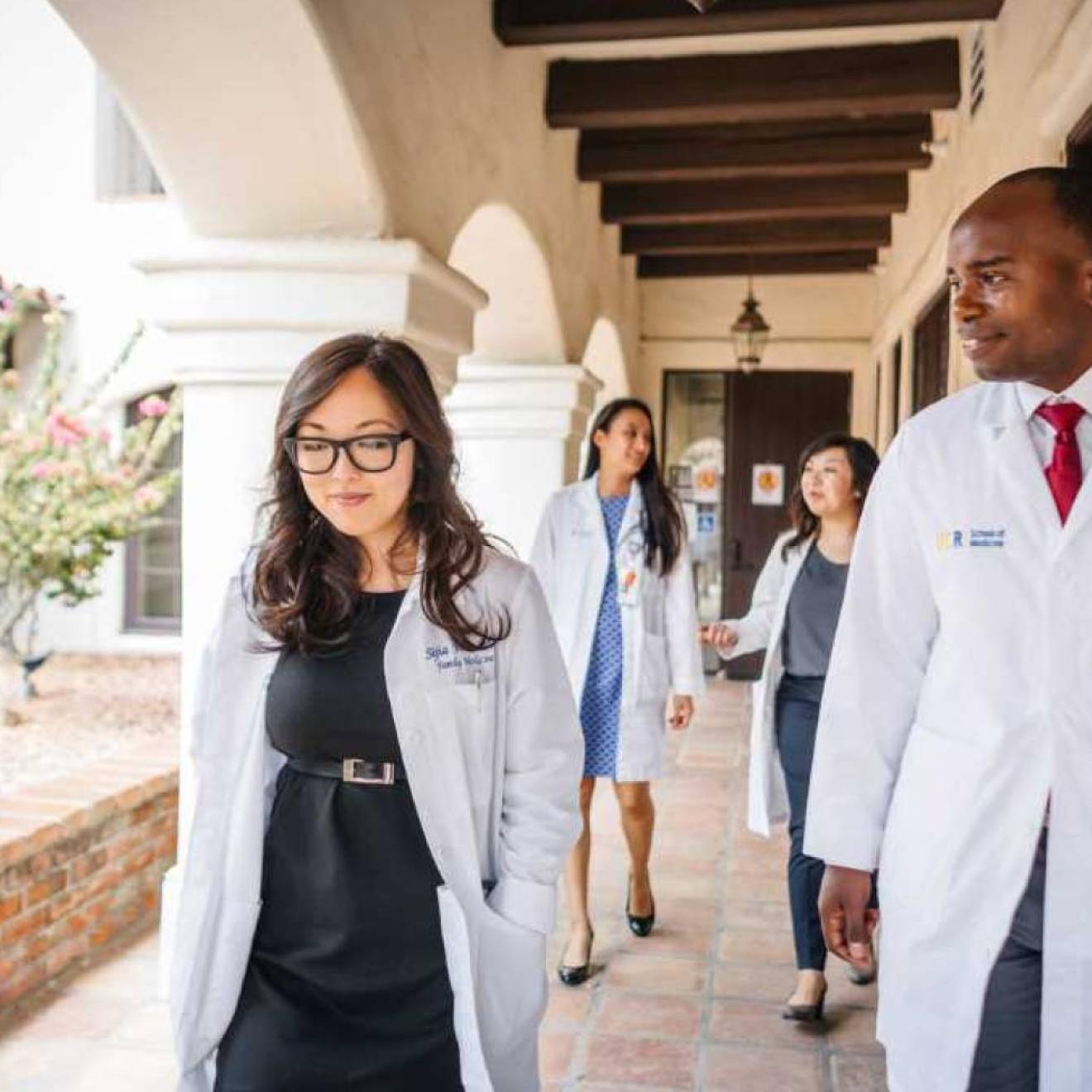Kim McDonald, UC San Diego
Ask any science major to name the toughest class they’ve had to complete in order to get into medical school or finish their undergraduate degree and, more than likely, the answer will be introductory organic chemistry.
So it might come as a surprise that one of the most beloved professors on campus is a chemist who’s taught this gut-wrenching course to anxious sophomores each fall for the past four decades and yet still manages to earn nearly perfect scores on his teaching evaluations from students. This month, Charles Perrin begins his 50th year at UC San Diego. And as you might expect from someone who exudes such passion for teaching and research, the trim and spry 74-year-old professor of chemistry and biochemistry has no plans to retire anytime soon.
“I just got my NSF grant renewed,” Perrin says, which will keep his research lab, funded by the National Science Foundation continuously for almost 40 years, in business for at least another couple of years. Perrin’s scientific curiosity and love for organic chemistry research hasn’t waned since the day the Nobel Prize-winning chemist Harold Urey lured him here in 1964. “Nature poses the most interesting puzzles,” Perrin says, “and there’s a sense of triumph when you finally solve one of those.”
But for two generations of students on the campus, Perrin’s biggest influence has been as their teacher and mentor. He is the iconic figurehead of introductory organic chemistry, the primary gatekeeper for students hoping to get into medical school—and, of course, that mustached chemist who bicycles through Revelle Plaza each morning to his office in Pacific Hall on his 1960s-era cruiser bike dressed in khakis, tweed sport coat and his signature sweater vest and tie. “The most popular question we always get from alumni is, ‘Is Charlie Perrin still dressing up and riding that old bike to work every day?’” says Melanie Cruz, senior development director for the Division of Physical Sciences.
Perrin still bicycles, but not every day, because he has been told by his doctor to get more exercise. He lives less than a mile south of the campus, so he walks on the days he doesn’t ride. “I was hired early enough that I was able to get a house I now couldn’t afford,” he quips. “But I also play tennis on campus on the weekends.”
Recruited as an assistant professor of chemistry while only a graduate student at Harvard (he also got his undergraduate degree at Harvard), Perrin was a prodigy who not only caught the attention of Urey, but also the eyes of famed physical chemists Joseph Mayer and James Arnold, the first chair of UC San Diego’s chemistry department. Because Perrin’s future laboratory and the rest of the science buildings were still being built, he accepted a 10-month postdoctoral position at UC Berkeley before arriving on the UC San Diego campus. “When I came here, there were only graduate students,” he says.
But as the first undergraduate classes began arriving at the campus and Perrin came back from a sabbatical to find his teaching schedule switched to the introductory organic chemistry course, his reputation as an undergraduate educator grew. On the wall of his sparsely furnished office are numerous plaques and certificates recognizing his outstanding teaching since 1977. With famed science educator Paul Saltman, Perrin was honored with one of the Academic Senate’s First Annual Distinguished Teaching Awards. In 2001, he won the UCSD Chancellor's Associates' Faculty Excellence Award for Teaching.
“He is as much a teacher to his colleagues as he is to the students,” says Seth Cohen, chair of the department of chemistry and biochemistry. “He is considered a great source of chemical knowledge, particularly in physical organic chemistry, which is a foundation for many other aspects of chemistry.”
Perrin occasionally runs into former students, who tell him how he’s molded their lives, and mentions with pride that one of his students last quarter told him her father had taken his class back in 1978. “He must have done well, because he’s the chief of medicine at an LA-area hospital.”
“The fact that year in and year out Charlie has had near perfect teaching records is astonishing,” says Mark Thiemens, dean of the Division of Physical Sciences and a professor of chemistry and biochemistry. “It also kills the old adage that teachers receive good reviews if they grade easy. Charlie is anything but that. He is simply an excellent teacher, and he is frequently spoken of in high regards by our alums, even 30 years or more later.”
William Lee, last year’s Outstanding Alumnus, M.A. ’79, Ph.D. ’82, can attest to that. Now senior vice president for research and pharmaceutical development at Gilead Sciences, the second largest research-based biopharmaceutical company in the world, Lee worked closely with Perrin as a graduate student in the 1970s and 80s.
“Charlie Perrin was the most intellectually intimidating professor any of us had experienced,” remembers Lee. “Impossible to match; his clarity, his process, his genuine interest in a motley group of graduate students greatly aided our maturation as scientists.”
Thiemens says that what’s especially remarkable about Perrin is that his introductory organic chemistry course is “one of the most challenging and dreaded” classes on the campus. “Many times it’s their first bad grade,” he adds. And yet his students give him some of the highest ratings for teaching on campus. So what are the secrets to Perrin’s teaching success?
“I don’t know,” he says after a long pause to think about the question. “It’s a hard course and I don’t ease up on the grades any. I’m a clear lecturer and I work at sprinkling a few jokes into the class.” Perrin believes it’s important to add some levity to his serious chemistry lectures. Plus, he wants to make sure the students in his large lecture hall (he had 320 last quarter and has had as many as 420) stay awake. “There’s nothing more embarrassing for someone than to wake up when all of the students around you are laughing and you have to ask, ‘What did he say?’”
His humorous quips also convey the importance of what he’s about to teach them. And they give pre-med students a heads up on why he takes his role as the gatekeeper to medical school so seriously. Those who end up not earning a passing grade, he believes, might want to think about alternative careers. That’s the basic message of his anecdote about the importance of organic chemistry nomenclature. “I tell them about the student who came up to me after an exam who drew the structure for propane instead of pentane,” he says, “and who says to me, ‘You know, I always get mixed up between propane and pentane, and you shouldn’t take points off for that because I need an A to go to medical school.’ And I tell the class I feel constrained to take off points for things like that because otherwise that student is going to go to medical school, and is going to become a physician, and is going to deliver a baby boy, and is going to say to the mother, ‘Gee I’m sorry about that, but I always get mixed up between circumcision and castration.’ And it breaks up the class.”
Perrin emphasizes to his students that with knowledge of basic organic chemistry reactions comes power. “Organic chemistry is learning to reason by analogy,” he says, “And I tell them that there are a small number of principles you’ll learn and from which you can reason to figure out an awful lot of chemistry. There might be a million molecules with different appendages, but as long as you understand the chemistry of the functional group, you can figure out the chemistry. So you’ve just learned how to predict a million different reactions.”
For the two-thirds of the students in each of his introductory organic chemistry classes who are biological science majors, Perrin emphasizes the relevance of the reactions they’re about to study that take place in living organisms. And for those students hoping to one day become doctors, he tells them about sometimes encountering new physicians who reveal to him that they once took his class.
“I always ask them what grade they got. And it’s almost always an ‘A,’” says Perrin with obvious pride. “A lot of my chemistry colleagues distain pre-meds. But I’m looking for bright students to become physicians. My life may depend on it.”

